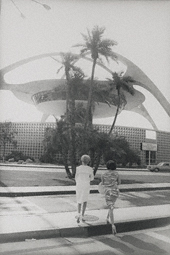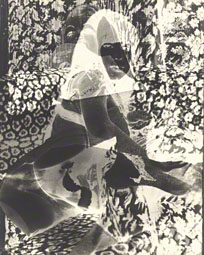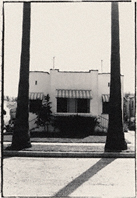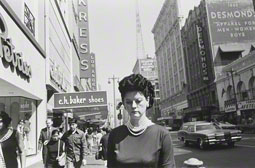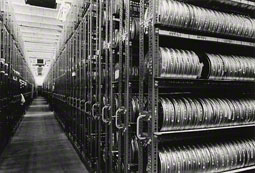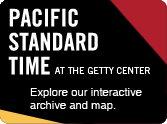| Exhibitions | ||
| Collection | ||
| Education | ||
| Research and Conservation | ||
| Publications | ||
| Games | ||
| Public Programs | ||
| About the J. Paul Getty Museum | ||
| Museum Home
|
December 20, 2011–May 6, 2012 at the Getty Center
It is immediately apparent that no city has ever been produced by such an extraordinary mixture of geography, climate, economics, demography, mechanics and culture; nor is it likely that an even remotely similar mixture will ever occur again. |
||||||
Experimental Photography With its reclining figure set against a patterned background, Robert Heineken's image recalls the odalisques of French painter Henri Matisse. To Heineken, however, traditional subjects and techniques were of little interest. He created this camera-less photograph by using a page torn from a magazine as the negative. This allowed light to pass through and merge depictions on both sides of the page into a single image with reversed tones.
|
||||||
Vernacular Architecture Judy Fiskin's propensity to backlight her subjects makes it difficult to read the details in the modest examples of vernacular architecture found in Westside neighborhoods of Los Angeles that she photographed for her Stucco series. Viewers may be inclined to squint against the harsh light of Southern California that Fiskin makes so palpable. Nevertheless, the small scale of her images, contained by the black edges of the negative, encourages close viewing.
|
||||||
Car Culture A native of Los Angeles, following two years of study at East Los Angeles College and two years of service in the U.S. Army, Anthony Hernandez took up photography in earnest around 1970.
|
||||||
Fantasy and the Film Industry Los Angeles native Anthony Friedkin took up photography about the same time he learned to surf, and was already an accomplished photographer by age 16. He then studied at Art Center College of Design and the University of California, Los Angeles.
|
||||||
